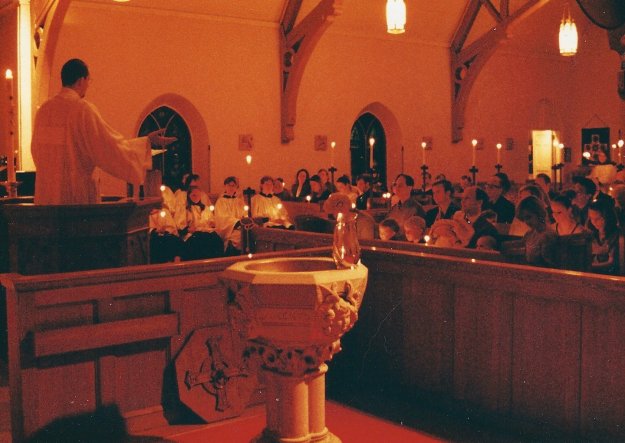The psalmist captures perfectly how we feel when we discover we are not in agreement on a particular issue, or that we are even working at cross purposes. We feel betrayed and deceived.
For had it been an adversary who taunted me,
then I could have borne it;
or had it been an enemy who vaunted himself against me,
then I could have hidden from him.
But it was you, a man after my own heart,
my companion, my own familiar friend.
We took sweet counsel together,
and walked with the throng in the house of God. (Psalm 55:13-15)
How can someone I thought I knew think so differently from me? If we don’t share these attitudes or opinions, what do we actually have in common?
Holy Week teaches us exactly what we have in common — the passion, death, and glorious resurrection of Jesus Christ which opens to us the way of everlasting life.
Like us, Jesus had men and women after his own heart, companions, familiar friends. One betrayed him, one denied him, most of them abandoned him, and they all hid in fear when they heard he had died.
Like the disciples, forgiven for their failings by the Risen Lord, we now share in Christ’s reconciling mission and are clothed by the Holy Spirit to reach forth our hands in love and to bring those who do not know Christ into the knowledge and love of Christ (see BCP 101).
Like the disciples and Christians ever since, we “take sweet counsel together” but disagree on what we’re supposed to do next. Share the good news with Jews only, or with Gentiles, too? Require circumcision or not? Men only as teachers and leaders, or women, too? Keep the kosher food laws or not? Couch the gospel in Jewish terms or translate it into Greek philosophical terms? Become the state religion or keep being persecuted? For 2,000 years we have taken sweet counsel together and disagreed on what to do next.
Paul writes to the Philippians to encourage them not to “worry about anything, but in everything by prayer and supplication with thanksgiving let your requests be made known to God” (4:6).
When we take sweet counsel with God and with one another, we are reminded what we share in common. We are reminded that our disagreements and our partial understanding and our personal agendas pale in the face of the glory that is revealed through Christ’s suffering, death, and resurrection.
We do not have to worry — Christ is our confidence. It’s not a zero-sum game; we can embrace “whatever is true, whatever is honorable, whatever is just, whatever is pure, whatever is pleasing, whatever is commendable, if there is any excellence, and if there is anything worthy of praise” (Phil. 4:8).
When we take sweet counsel together, we may come to understand a surprising truth. Through Christ, God is continually working a new thing. Not with the power of the state, but through weakness. Not with military might or the rule of law, but by the will of the Father. Not angry over our betrayal, but forgiving even his torturers. Not condemning the weak, but giving us the Holy Spirit and sending us out in his Name.
Collect for Wednesday in Holy Week
Lord God, whose blessed Son gave his body to be whipped and his face to be spit upon: Give us grace to accept joyfully the sufferings of the present time, confident of the glory that shall be revealed; through Jesus Christ your Son our Lord, who lives and reigns with you and the Holy Spirit, one God, for ever and ever. Amen. (BCP 220)







